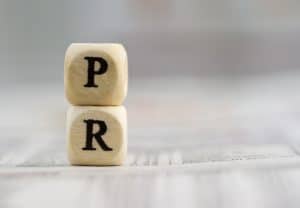The World of Public Relations Jobs: A Comprehensive Guide
In today’s fast-paced, interconnected world, the demand for skilled professionals in the realm of “Public Relations Jobs” has skyrocketed. As businesses and individuals strive to maintain a positive image and cultivate strong relationships with their target audiences, public relations specialists have emerged as indispensable assets in achieving these goals.
With a diverse range of roles available, from media relations and social media management to event coordination and crisis communication, public relations jobs offer a wealth of opportunities for those with exceptional communication skills, creative thinking, and a passion for relationship building.
Embarking on different public relations jobs can be a fulfilling and rewarding experience, with ample room for growth and development. Whether you’re a recent graduate looking to break into the industry or a seasoned professional seeking new challenges, the world of public relations offers a dynamic landscape where you can make a tangible impact on an organization’s reputation and image.
In this comprehensive guide, we’ll explore the various public relations roles available, the skills required for success, and practical tips on how to kickstart your career in this exciting field.
What is Public Relations?
What is public relations? Public relations is a vital strategic communication process that focuses on establishing, nurturing, and sustaining relationships between organizations and their target audience. It plays a pivotal role in shaping the public’s perception of a brand, individual, or organization by positively influencing their image, opinions, and reputation. PR professionals employ a multifaceted approach, utilizing a combination of communication channels to achieve these objectives.
One of the key components of public relations is traditional media, which encompasses newspapers, magazines, television, and radio. PR professionals work closely with journalists and media outlets to secure favorable coverage and amplify their clients’ messages. By crafting compelling press releases, story pitches, and media kits, PR specialists can capture the attention of the media and generate positive exposure for their clients.
Another essential aspect of public relations is social media. In today’s digital age, social media platforms such as Facebook, Twitter, Instagram, and LinkedIn have become indispensable tools for PR practitioners.
These channels allow them to connect with their target audiences directly, share engaging content, and monitor conversations related to their clients. Social media also enables PR professionals to gauge public sentiment, identify trends, and respond swiftly to emerging issues or potential crises.
Events, too, play a significant role in the public relations landscape. By organizing and executing events such as product launches, press conferences, and networking gatherings, PR professionals can generate buzz and media coverage for their clients. These events offer opportunities for organizations to showcase their products, services, or accomplishments while fostering connections with key stakeholders, including journalists, influencers, and industry leaders.
In essence, public relations is a complex and ever-evolving field that requires PR professionals to skillfully navigate various communication channels and strategies to achieve their clients’ objectives. With the rise of new media and technologies, the realm of public relations continues to expand, presenting fresh challenges and opportunities for organizations and PR practitioners alike.
What are the Different Public Relations Jobs?
What are the different public relations jobs? The public relations industry is diverse and multifaceted, offering a wide array of roles that cater to different skill sets and interests. Some of the most common public relations jobs include:
PR Specialist:
PR specialists are the backbone of the PR industry. They are responsible for creating and maintaining a positive image for their clients by developing and executing strategic communication plans. This often involves crafting well-written press releases, organizing media events, and managing the client’s social media presence. PR specialists must possess strong writing and interpersonal skills, as well as an in-depth understanding of their client’s goals and target audience.
Media Relations Manager:
Media relations managers are the bridge between their clients and the media world. They focus on building and maintaining relationships with journalists and media outlets, ensuring their clients receive positive coverage. To achieve this, they pitch stories, arrange interviews, and provide relevant information to journalists. Media relations managers must have excellent communication skills and a keen understanding of the media landscape to identify opportunities for coverage.
Social Media Manager:
Social media managers harness the power of social media platforms to amplify their clients’ messages and engage with target audiences. They develop and implement social media strategies, create and curate content, monitor conversations, and analyze performance data to optimize campaigns. Social media managers must be proficient in using various social media platforms and possess a deep understanding of social media trends and best practices.
Event Coordinator:
Event coordinators are responsible for planning and executing events that generate buzz and media coverage for their clients. These events can range from product launches and press conferences to networking events and trade shows. Event coordinators must be highly organized, detail-oriented, and capable of managing multiple tasks simultaneously. They often work closely with vendors, venues, and other stakeholders to ensure events run smoothly and achieve their objectives.
Crisis Communications Specialist:
Crisis communications specialists play a crucial role in managing an organization’s response to negative events or situations that could damage its reputation. They develop strategies to mitigate damage, manage media inquiries, and communicate effectively with the public during times of crisis. Crisis communications specialists must be adept at thinking on their feet, possess strong problem-solving skills, and have the ability to remain calm under pressure.
PR Account Executive:
PR account executives act as the primary liaison between PR agencies and their clients. They manage client relationships, provide strategic guidance, and ensure that PR campaigns meet their goals. Account executives must have excellent project management skills, a deep understanding of the PR industry, and the ability to tailor strategies to meet their client’s unique needs.
The public relations industry offers a diverse range of career paths that cater to various skill sets and interests. From developing communication strategies and managing media relationships to planning events and handling crises, there is no shortage of opportunities for professionals looking to make a significant impact in the world of public relations. As the industry continues to evolve, new roles and specializations may emerge, presenting even more possibilities for growth and success.
What are the Essential Skills Needed for a Career in Public Relations?
What are the essential skills needed for a career in public relations? To excel in a public relations job, you’ll need a diverse and well-rounded skill set that includes the following:
Communication Skills:
Exceptional communication skills are the foundation of a successful PR career. PR professionals must be adept at conveying messages effectively, both in writing and speaking. This involves creating compelling press releases, crafting engaging social media content, and delivering persuasive presentations.
The ability to adapt tone and style to suit different audiences is also crucial, as PR professionals often communicate with a variety of stakeholders, from clients and journalists to the general public.
Interpersonal Skills:
Public relations is inherently a people-centric field, with relationship-building at its core. PR professionals must excel at connecting with people from various backgrounds, including clients, media representatives, and other stakeholders.
Strong interpersonal skills, such as active listening, empathy, and diplomacy, enable PR practitioners to establish trust, foster collaboration, and nurture lasting relationships.
Research and Analytical Skills:
Research is an essential component of public relations, as it helps PR professionals understand industry trends, client needs, and audience preferences. This information is invaluable for developing targeted strategies that resonate with the intended audience.
Analytical skills are equally important, as they enable PR professionals to measure the success of their campaigns, identify areas for improvement, and make data-driven decisions. Mastery of analytics tools and the ability to interpret data are crucial in today’s data-driven PR landscape.
Creativity:
In the competitive world of public relations, creativity is key to standing out from the crowd. PR professionals must think outside the box to develop innovative strategies, devise attention-grabbing campaigns, and uncover unique angles for their client’s stories. This requires a keen sense of curiosity, a willingness to take risks, and the ability to think critically and solve problems creatively.
Time Management and Organization:
Public relations professionals often juggle multiple clients, projects, and deadlines simultaneously. This demands exceptional time management and organizational skills to ensure that tasks are completed efficiently and effectively.
PR practitioners must be able to prioritize tasks, set realistic deadlines, delegate when necessary, and maintain a high level of attention to detail. The ability to stay organized under pressure and adapt to changing priorities is critical for success in the fast-paced world of PR.
A successful PR professional must possess a diverse set of skills that encompass communication, interpersonal abilities, research, analytical thinking, creativity, and time management. Developing and honing these skills will not only enhance a PR professional’s performance but also contribute to their career growth and long-term success in the dynamic field of public relations.
How do you Break into the Public Relations Industry?
Breaking into the industry may seem challenging, but with the right approach, you can pave your way toward a successful career in this exciting field. So, how do you break into the Public Relations industry? Let’s explore the essential steps to kickstart your PR journey.
Education:
While having a degree in public relations, communications, or journalism can provide a solid foundation for a PR career, many professionals come from diverse educational backgrounds.
Pursuing relevant coursework, such as marketing, business, and psychology, can help you develop the necessary skills for a PR career. Additionally, participating in internships during your studies can provide valuable hands-on experience and a deeper understanding of the industry.
Networking:
In the PR industry, networking is vital for career advancement. Attend industry events, conferences, and workshops to meet professionals and potential employers. Join professional organizations, such as the Public Relations Society of America (PRSA), to gain access to resources, networking opportunities, and job listings.
Engage with PR professionals on social media platforms like LinkedIn and Twitter to expand your network and stay informed about industry trends.
Build Your Portfolio:
Creating a portfolio is an essential step in showcasing your skills and talents to potential employers. Include samples of your writing, such as press releases, blog posts, and articles, as well as examples of social media campaigns, event planning, and any other relevant PR work.
This demonstrates your ability to create compelling content and execute successful PR strategies.
Gain Experience:
Internships, entry-level positions, and volunteer opportunities are all excellent ways to gain hands-on experience in the PR industry. Seek opportunities with PR agencies, in-house PR departments, non-profit organizations, or even start-ups.
Each experience will help you build your skillset, make valuable connections, and bolster your resume.
Stay Informed:
Staying current on industry trends, news, and best practices is crucial for success in the PR world. Regularly read PR blogs, subscribe to industry newsletters, and follow thought leaders on social media to stay informed and knowledgeable.
Develop Your Personal Brand:
As a PR professional, your personal brand is crucial in establishing your credibility and expertise. Maintain a professional online presence, engage with others in the industry, and showcase your expertise by contributing to industry discussions, writing articles, or even starting your own blog.
Career Growth and Advancement in Public Relations
As a public relations professional, the opportunities for career growth and advancement are vast and varied. The industry is constantly evolving, with new trends and technologies shaping the way PR is practiced. But what does it take to climb the career ladder and achieve success in this competitive field?
Professional Development:
Continuously invest in your professional development by attending workshops, conferences, and seminars relevant to the PR field. Pursuing certifications, such as the Accreditation in Public Relations (APR), can enhance your credibility and demonstrate your commitment to the profession.
Specialize:
As you gain experience in public relations, consider specializing in a specific industry, niche, or area of expertise. This specialization can help you become an expert in your chosen field, increase your value to potential clients, and set you apart from other professionals.
Explore Management Roles:
With experience and a proven track record of success, PR professionals may advance to management positions, such as PR director or vice president. These roles often involve overseeing a team of PR specialists, developing and implementing strategies, managing budgets, and ensuring the overall success of PR campaigns.
Conclusion
Public relations is a multifaceted and fulfilling industry that provides a wealth of opportunities for individuals who possess strong communication skills, creativity, and a genuine passion for building meaningful relationships. By dedicating time and effort to your professional development, actively engaging in networking opportunities, and seeking out practical experiences, you can successfully forge a path into the world of public relations and establish a rewarding career.
Salaries for public relations jobs can vary based on factors such as experience, location, and industry. According to the U.S. Bureau of Labor Statistics, the median annual wage for public relations specialists was $62,810 as of May 2020. However, PR professionals in management roles or with extensive experience can earn significantly more.
As you progress in your PR journey, the industry offers numerous avenues for career growth, including specialization in specific niches or industries, management roles, and even entrepreneurship. Embracing these opportunities and continuously adapting to the ever-evolving landscape of public relations will not only ensure your personal and professional growth but also contribute to the overall success and impact of your work in this dynamic field. Remember, the key to thriving in public relations lies in your ability to remain curious, adaptable, and committed to delivering exceptional results.
Want to learn more about getting into the best public relations program in the country? You’ve come to the right place. At AdmissionSight, we have over 10 years of experience guiding students through the competitive admissions process.
AdmissionSight can help you put your best foot forward when applying to college this fall. Contact us today for more information on our services.










































